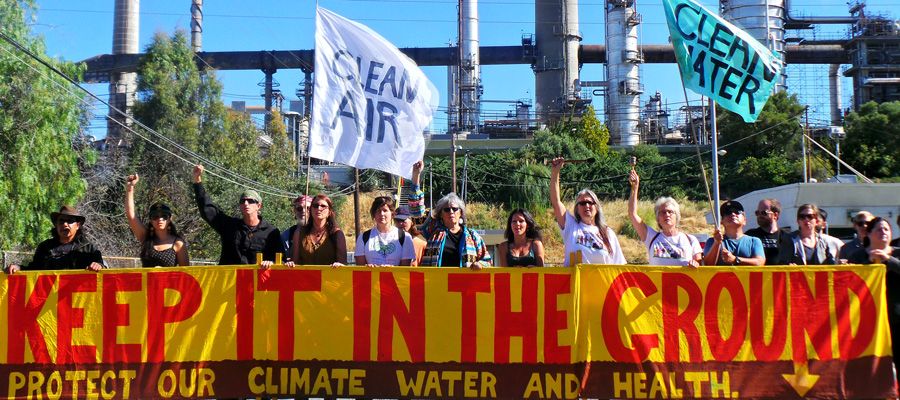Get a grip indeed
One wonders if the Globe and Mail’s intrepid Victoria correspondent, Justine Hunter, appreciates the irony of her weekend dispatch on Energy Minister Bill Bennett’s ‘vow’ to rein in BC Hydro spending. Pretty well everything Bennett promised to do, and that Ms Hunter dutifully reported, completely missed the point of what ails BC Hydro and what has to be done to fix it.
It is not surprising that a senior Minister would want to blame mismanagement at BC Hydro for cost overruns and extreme pressure on rates. And it is nothing new for the Liberal government to say its number one goal is for BC Hydro to behave like a crown corporation ‘with an eye on the bottom line’. Then Premier Campbell said the exact same thing when the Liberals came to power in 2001.
The problem, however, is that it was the government itself, in an unprecedented series of directives and new legislative requirements, that forced BC Hydro to abandon consideration of the bottom line in its planning, investments and operations.
The ill-considered and now widely criticized self-sufficiency requirements prevented BC Hydro from managing fluctuating water conditions in a cost effective manner. That plus the government overriding the BC Utilities Commission’s decision that would have allowed BC Hydro to rely on the Burrard Thermal plant in dry water years, as it had in the past, forced BC Hydro to buy high cost, low value independent power producer (IPP) supply that it did not need.
All told, these government policies not only needlessly added billions of dollars to BC Hydro’s costs, but also limited BC Hydro’s trading subsidiary Powerex from taking full advantage of the increasingly volatile market prices in the U.S.. There are now times that market prices are negative (utilities would pay Powerex to take surplus power that they must produce and cannot use), but Powerex cannot do so because of the unnecessary, high priced IPP purchases government forced BC Hydro to make.
And then there were the investments government forced BC Hydro to make and told the BC Utilities Commission not to review. The now topical northwest transmission line was one of them and like many it went ahead without any business plan or benefit-cost justification.
The biggest problem with the northwest transmission line is not the overrun in its cost. The biggest problem is that it never made economic sense, at least not with BC Hydro’s rate policies (again dictated by government legislation) that results in industrial rates even for large new loads being less than half the cost of the new supply BC Hydro must acquire to supply them. As one BC Hydro Vice President put it: “our business plan on the northwest transmission plan is simple — the more we sell. the more we lose and the more rates will have to go up”.
If Minister Bennett feels blindsided by the cost overruns on the northwest transmission line (which he shouldn’t given that the former chair of the BC Hydro Board is now the premier’s chief of staff), he should be taking aim at his colleagues in Cabinet — the ones who told BC Hydro to build the line without any business plan and without independent BC Utilities Commission oversight and review.
And if he really wants to fix the fundamental problem with the line, he should ask BC Hydro what it is paying for new sources of power (including the power it will be buying in the northwest) and what it is charging its new industrial customers for the power it needs to acquire to supply them. Put more plainly in the ‘bottom line’ focus he wants to impart on BC Hydro he should ask: “how much is BC Hydro losing on each new sale and what needs to be done to change that”.
Ms Hunter reported that there hasn’t been a public rate review since 2009. Not so. There was one in the last two years but it was stopped by Premier Clark who didn’t want rates to go up by the amount she must have known the BC Utilities Commission would have ordered. It was pre-election mode and the double digit rate increases that were required was not in her reelection interest.
It isn’t BC Hydro mismanagement that Minister Bennett has to rein in. It is the excessive, ill-considered intervention by government that has to change. The self-sufficiency and other artificial restrictions in the Clean Energy Act have to be removed. Government directives exaggerating the amount of BC Hydro’s equity and cost of its capital have to be withdrawn. Government policy on industrial rates has to change to avoid the huge losses BC Hydro is incurring on new sales. Government must avoid its temptation to force BC Hydro to make huge investments that don’t make economic sense. And the BC Utilities Commission must be allowed to do its work.
Minister Bennett needs to take a hard look at what its government has done to BC Hydro and hopefully he will be able to say, in that great mea culpa of all time “I’ve seen the enemy and they are us”.
Topics: Climate change & energy policy


